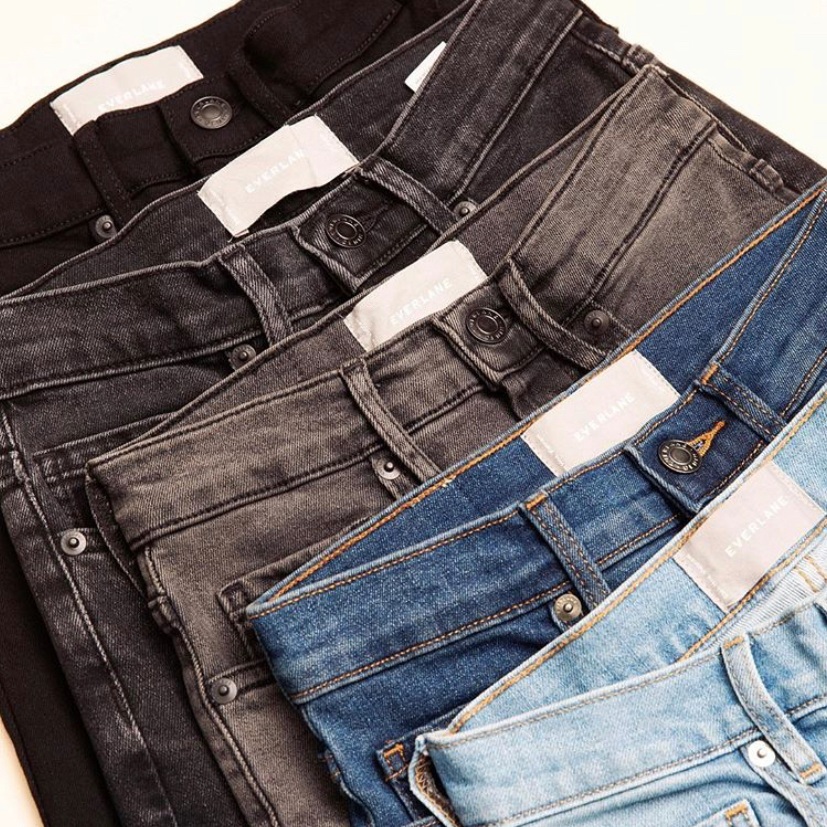What is Ethical Fashion? A Simple Explanation.
If you’ve been anywhere near the fashion world in the past 4 or 5 years, you’ve probably heard the term “ethically made” or “ethical fashion” thrown around. I don’t know about you, but when I hear the word “ethical” I start thinking of bad job training videos and my college freshman philosophy class.
And in a way, that’s actually kind of right.
So.
What is the meaning of ethically made clothing?
The guiding principles we learn as children in school or in church or from our parents are similar to the guiding principles that ethical fashion designers are trying to implement. Because, believe it or not, the same rules of life don’t necessarily apply to business, even though they really, really should.
To put it super simply, if it’s something your mom taught you as a child, then it’s an ethical fashion value.
This includes:
Treating employees fairly
Caring for your environment
Not letting your eyes be bigger than your plate. Or in this case, your shopping bags bigger than your closet.
Treating Employees Fairly
Ethical fashion is the exact opposite of fast fashion. And what is fast fashion? Fast fashion is that buying mindset. Where we buy because something is cheap, it’s on sale, we want more, we need a new dress for a wedding, we need new shoes for that dress, and before you know it we have a closet stuffed with cheap clothes we hardly wear or even like.
But, the worst part about fast fashion is the impact on our earth and the people making our beloved clothing.
Many of the employees of major fashion corporations like Nike or Zara are paid absolute pennies. And while in these countries wages are typically lower than wages in the US, these are still not livable wages for the economy they are in, most of the time. A vast majority of the employees are females and sometimes children working in worse than sweatshop conditions in falling apart buildings that are spewing pollution and chemicals into their lungs and the environment.
Frankly, it’s disgusting.
Check out these examples of how Fast Fashion kills:
Ethical fashion designers and suppliers are applying the golden rule to their employees. Treat others how you want to be treated. This means that employees are paid fair wages, children aren’t employed and deprived of education, and the working environment is safe for all workers.
This all seems pretty basic, but with the rise of cheap and outsourced labor, the kinds of principles we would look for in a job kind of went to the wayside as more and more factories were opened in places with less regulation. Places with little regulation are known as high risk, and this is typically countries in Asia and sometimes South America.
Now, you might be thinking well, I’ll just buy everything Made in the USA. That’s not a bad thing, but it also isn’t a bad thing to purchase from companies that manufacture outside of the US. In fact, that’s the whole point of this ethical fashion fair trade movement.
Global trade works because, well, the whole world participates. Shutting yourself off or your country off from global trade isn’t good for your economy and it makes it a lot harder to find goods you want. So, we outsource and we buy from foreign manufacturers. This is not bad. What is bad, is when we buy from companies that manufacture overseas but also treat their employees unfairly.
Ethical fashion designers are paying fair wages to their employees, ensuring safe working conditions, not employing children, providing education, providing vacation time, and restricting too much overtime or long shifts.
Caring for Your Environment
A safe working environment doesn’t just mean that employees aren’t inhaling harmful substances or fibers, it also means those same things aren’t being released into the earth’s atmosphere, waterways, and ground.
When we buy clothing made of fabrics that are manmade, we’re pretty much saying “I never want this piece of clothing to fall apart.” And it won’t. Not on you and not in its place in the eventual landfill. Producing fabrics like polyester or acrylic fibers needs an insane amount of water and creates polluted runoff that contaminates the ground and water around the factories.
Then, once those fabrics get into our hands, we continue to pollute the water, because polyester sheds micro fibers when it’s washed that aren’t so great to drink or consume.
Those who are pursuing ethically made clothing are limiting carbon emissions, cutting down on water waste, and using more natural fabrics like cotton, wool, or silk. These are fabrics that will degrade naturally and won’t cause the same amount of pollution or water waste to produce.
Don’t Let Your Shopping Bags be Bigger than Your Closet
Finally, ethical fashion producers are typically proponents of a small part of ethical fashion called “slow fashion”. Slow fashion means buying less and only buying what you need. This doesn’t mean that every event you go to counts as a need for a new outfit. Instead, it means that you have two or three outfits just for those kinds of events already on hand and ready to rewear.
Slow fashion also means buying more quality clothing. This means better fabrics and better construction. Someone who makes ethically made clothing isn’t going to produce flimsy polyester blouses. Instead they might produce a quality silk blouse or a wool blend sweater of high quality wool.
Ethical fashion and slow fashion combine to mean that we as consumers aren’t submitting to trends and buying the latest cut of everything we see. It also means that those who make ethical clothing are making more classic cuts and timeless pieces, or that they produce small amounts of trendy items to reduce the amount of waste.
Let’s recap!
The gist of it?











